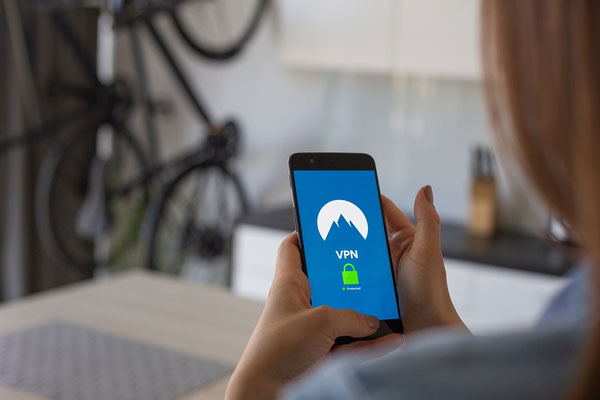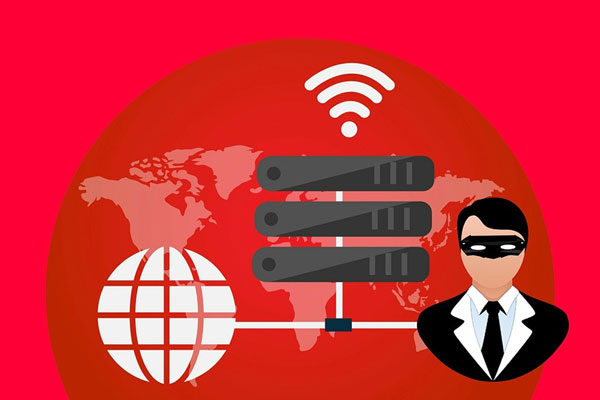Maintaining security while online has always been important, and the increasing number of tasks that we handle through the internet has made the need to keep your information safe all the more critical. For people who want to ensure their online privacy—whether it’s to browse anonymously or protect themselves from online attacks—several options exist.
VPN and proxies are two of the most known ways to keep information to yourself while browsing the web, but they are not equal. Each method helps protect your online privacy in different ways, and you should take some time to know which is best for you. Thankfully, you don’t need to look any further: our ultimate VPN vs. proxy guide is here to help!
What Is a VPN and How Does It Help You?
The term VPN stands for virtual private network. This approach to protecting your online privacy works by connecting your operating system to a remote VPN server. The result is that your connection becomes encrypted, providing a level of security, and any internet connections will appear as if they come from the alternate server, rather than our own.
With the encryption involved, a VPN will ensure that your entire network connection has protection. This security doesn’t only include data that passes through your web browser, but also through other apps, downloading programs, and more. The safety will also work, even if you’re on a third-party network, preventing those security risks.
Because of the protection that VPN servers provide, they have become a preferred method for many—and in response, you’ll find multitudes of providers out there. What’s critical to remember is that, like most other services, some different VPNs are superior to others. You’ll need to conduct some additional research to ensure you’re receiving quality protection.
Depending on the service you select, a VPN server will likely allow you to take advantage of other security features. Options such as NAT firewalls, private DNS, and DNS protection are some of the popular ones, and they can enhance your safety while online.
VPNs are also not without their downsides. To use one, you’ll need to download the required software first. That software is then what helps run the VPN connection, meaning that it will take up some of your computer’s operating power, as well as lower your loading speed. The protection is worth it overall, but you should prepare yourself for changes in your system’s operation—as well as the cost of the VPN itself.
Pros
Cons
What Is a Proxy Server and How Does It Help You?
In some ways, you’ll find that a proxy server is similar to a VPN. A proxy connection will also sit between your computer and the internet, and it hides your IP address, replacing it with another. If you’re not familiar with the concept, changing your IP address makes it seem like your connection is coming from somewhere else, rather than your computer.
After that, however, is where the two programs start to diverge. A proxy server works on an application-by-application basis, meaning that you’ll need different proxies to protect the different aspect of your network. Most likely, you’ll find proxies that will provide an alternate version of your IP address when working through a web browser, making them more suitable for small tasks.
There also isn’t any encryption involved with a proxy, unlike with a VPN. Though it will look like your connection is coming from somewhere else, people will still be able to access any traffic passing through, unless you have other measures set up. The benefit, however, is that a proxy does not consume resources or network speed the way a VPN does.
If you research types of proxies, you’ll find that some are suitable for operating within your browser, some will be public resources, and others will help handle more diverse types of traffics. For the most part, however, you’ll find that proxies are free (with a few exceptions), which can be helpful when you’re short on cash or a one-off solution to a connection issue.
Pros
Cons
Which One Is Best for You?
Not everyone is going to have the same online security needs, so it can be difficult to know which is superior when looking at the VPN vs. proxy debate. While VPN services provide overall better protection and more benefits, you may not need an ongoing setup like a virtual private network. Some smaller tasks can only require a proxy server.
This breakdown will help you understand when you’ll need which option to provide you with the best type of protection.
When Should You Use a VPN?

Image via: Pixabay
If you find yourself needing privacy and security online, then a VPN will be your best bet in most situations. The encryption capabilities of a VPN are part of what makes them the stronger contender, as you won’t have to worry about anyone accessing your data, even when connecting to third-party networks. Your anonymity and privacy then become a guarantee.
Aside from the encryption involved, most VPNs understand your desire to stay anonymous when accessing online information. Unlike a proxy, a VPN won’t keep track of your IP address in any form, preventing the possibility of someone tracking your activity back to your connection.
Here are some of the other reasons you should consider using a VPN.
Protection Across Multiple Connection Types

Image via: Pixabay
As mentioned, you’ll access a VPN by first installing the required software on your computer. Since you’re not operating under a limited connection, any application you use on your computer will receive the protection and encryption from the VPN. So long as you’re connecting to a network through the device with the software, the VPN will take effect.
The fact that the protection applies, even when connecting to networks outside of your home, is an excellent benefit. Public systems tend to have minimal security measures involved so that they provide open access to so many people, and this setup can put your transactions at risk. A VPN will still protect you under these conditions.
Accessing Geo-Restricted Content

Image via: Pixabay
Some websites and types of contents will block your connection based merely on the region you’re accessing a website through. From entire sites to even specific streaming content, geo-restrictions can get in the way of your web experience. A VPN will allow you to connect to an appropriate server that will give you access to these types of data.
Preventing Torrent Throttling

Image via: Pixabay
Torrenting provides a way to download data and files from various others. However, because regular torrenters often download and upload large packets of data, they can become targets for torrent throttling. This tactic aims to slow down torrenting by throttling a network connection, which then creates a great inconvenience for your IP address.
This issue is where the encryption capability of a VPN comes in handy. No matter how you use your data, be it as regular browsing or for torrenting, a VPN will encrypt the data, so no one can tell what you’re accessing. If an IP is then unable to identify that you’re torrenting, it won’t be able to throttle your data connection, helping you have fast access to data, streaming, and downloads.
Things to Consider When Looking for a VPN Provider
If you believe that a VPN is right for you, you’ll want to ensure that you use a service that’s suitable for your needs. Some specifications to look for are:
When Should You Use a Proxy?

Image via: Pixabay
Because of their limitations, a proxy isn’t as permanent of a solution as a VPN is. Proxies, while sufficient for some short-term uses, aren’t anywhere as safe as a VPN would be. As such, you should make use of a proxy server sparingly, and for specific purposes.
Accessing Geo-Restricted Content
Just like a VPN, you can use a proxy server to gain access to geo-restricted content. If you plan to do this, however, you’ll need to pay attention to the proxy server’s location, so that it matches with a region that has access to what you want to view.
When a Quick Solution Is a Priority

Image via: Pixabay
You don’t need to download and install any software to use a proxy server; instead, you can access one right through your internet browser. If you find yourself in a position where you only need a proxy for a short period, or you don’t have the time to install a VPN, a proxy can be ready to use within a matter of minutes. The lack of drain on your resources will also allow you to maintain your connection speed.
Getting Rid of Targeted Ads
Best advertisement practices aim towards providing customers with a customized experience, and your IP address is one of the ways companies help provide relevant ads. By using a proxy to substitute your IP address, such ads won’t connect to your system correctly. However, some proxy servers will inject their ads into sites as a tradeoff, which can pose security issues.
Understanding the Types of Proxy Servers
Though you likely won’t need to use a proxy for an extended period, you should still learn the major types so that you know what to look for when you need one. The major kinds are:
Which One Is Superior?
While what sort of protection you need can be a personal matter, things are a bit more clear-cut in the VPN vs. proxy server showdown: If you want any reliable protection, a VPN is more than worth the cost, as it provides encryption to thoroughly protect your data connection, no matter what you access. On the other hand, a proxy will take care of quick issues, but they tend to be less secure.
With everything in mind, you now know that, in the battle of VPN vs. proxy, VPNs are the preferred solution in a majority of situations.

